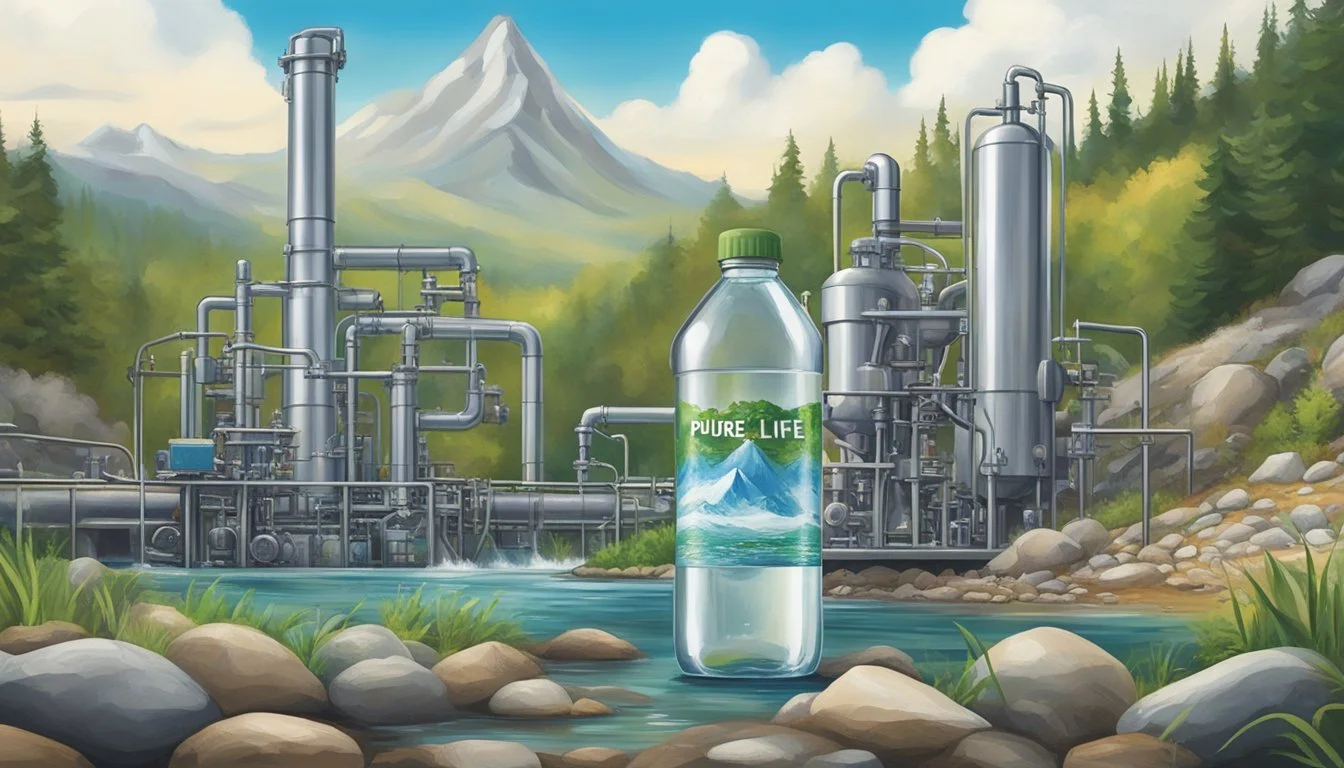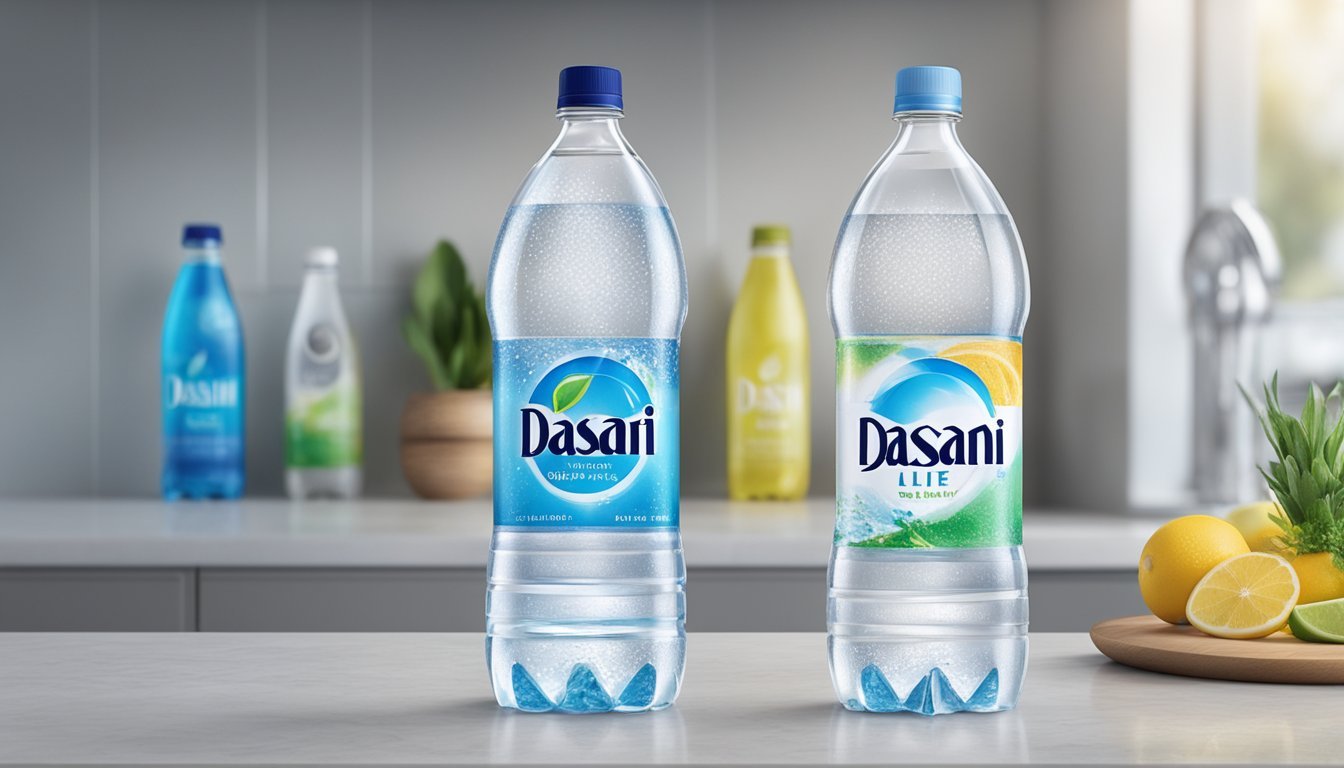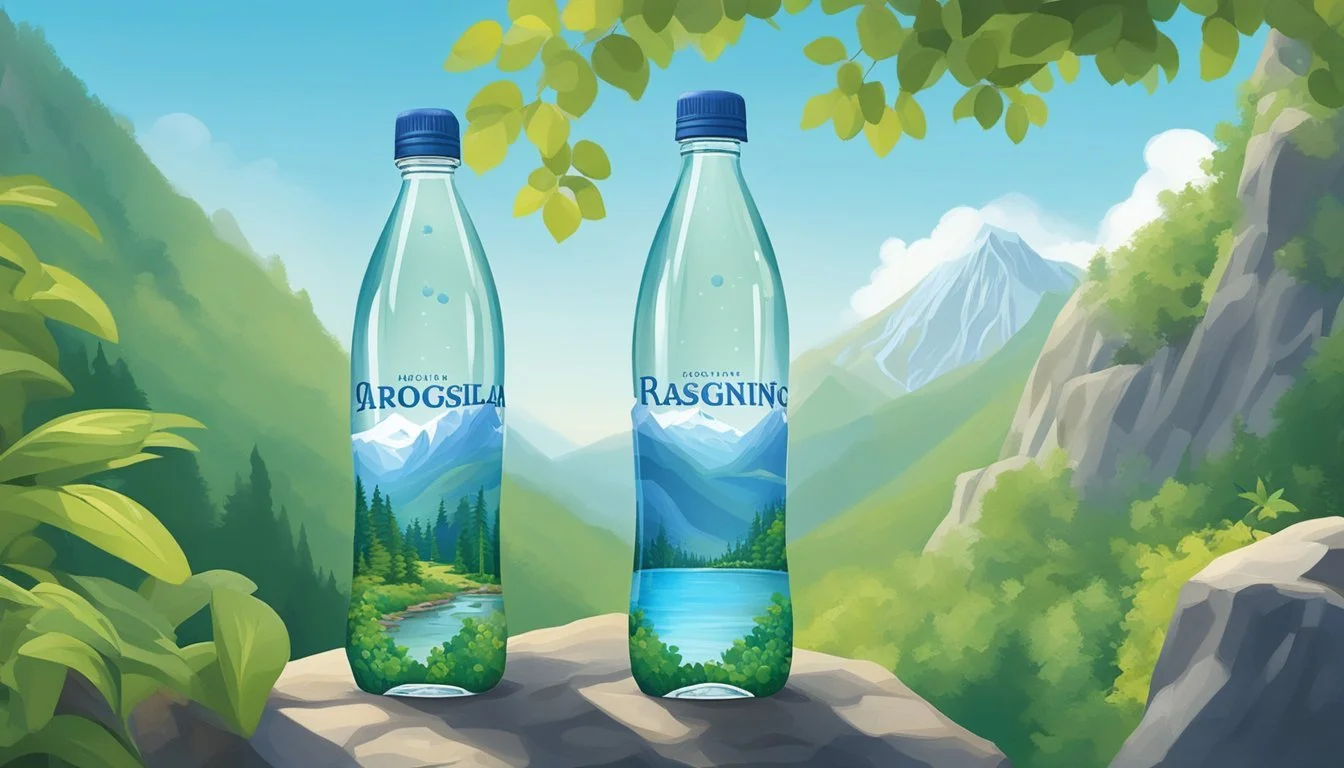Pure Life vs. Dasani
Comparing Bottled Water Quality
When choosing between Pure Life and Dasani, consumers might wonder which bottled water offers better taste and quality. Taste preferences can be highly subjective, with Dasani recognized for its distinct mineral flavor from added electrolytes, while Pure Life is praised for its neutral and balanced taste. For those who prefer a clean, crisp experience, Pure Life might be the better option.
Both brands have notable characteristics beyond just taste. Dasani is a product of Coca-Cola, adding electrolytes to purified water, which some consumers believe enhances hydration. Pure Life, owned by Nestlé, is classified as purified water and focuses on delivering a straightforward, refreshing taste without additional flavors. Health-conscious consumers might lean towards Pure Life due to its simplicity and lack of additives.
Market availability and brand reputation also play crucial roles. Nestlé's Pure Life is one of the most trusted names, with a vast global presence and commitment to providing reliable hydration. On the other hand, Dasani, with its strong backing by Coca-Cola, remains a popular choice in many regions. Each brand brings its strengths to the table, catering to different tastes and preferences in the competitive bottled water market.
Brand Histories
Dasani and Nestlé Pure Life both have distinct backgrounds influencing their prominence in the bottled water market. While Dasani is a product of Coca-Cola, Nestlé Pure Life evolves from a global giant with extensive experience in the water industry.
Dasani Origins
Dasani was launched by Coca-Cola in 1999. Coca-Cola aimed to enter the rapidly growing bottled water market with a unique product.
The water is sourced from local municipal supplies and then filtered through a rigorous purification process involving reverse osmosis. To enhance flavor, Dasani includes a blend of minerals like magnesium sulfate, potassium chloride, and salt. This gives it a distinctive, crisp taste that sets it apart from other bottled waters.
Marketing efforts by Coca-Cola have significantly boosted Dasani’s visibility. The brand is sold widely across North America and has a strong presence in many other international markets.
Nestlé Pure Life Evolution
Nestlé Pure Life was introduced in 1998, one year prior to the launch of Dasani. Nestlé, a company with a deep history in food and beverages, leveraged its expertise to develop Pure Life.
The water undergoes advanced filtration to remove impurities, ensuring purity and safety. A balanced combination of minerals is added to enhance taste.
Initially launched in Pakistan, Pure Life rapidly expanded its presence globally. It’s now available in many countries, including the United States and Canada. By tapping into its extensive distribution network, Nestlé ensured that Pure Life became a staple in households worldwide. The brand is often praised for its consistent quality and taste.
Water Sourcing
Water sourcing plays a critical role in determining the taste, quality, and mineral content of bottled water. Below is an in-depth look into the sources of Dasani and Pure Life, as well as a comparison with other popular brands.
Dasani Source Analysis
Dasani sources its water primarily from municipal tap water. The company purifies the tap water using a comprehensive process that includes reverse osmosis, UV treatment, and other filtration methods to ensure its cleanliness.
Mineral Additives:
To enhance flavor, Dasani adds minerals such as magnesium sulfate, potassium chloride, and salt.
Key Takeaways:
Municipal tap water as the source
Rigorous purification process
Added minerals for taste
Pure Life Water Sources
Pure Life by Nestlé also sources its water from both municipal and well sources. The water goes through a multi-step filtration process that removes impurities and is then remineralized for consistency in taste and quality.
Multiple Sources:
Pure Life uses various water sources, including wells and municipal supplies, depending on the location.
Consistent Quality:
Their strict purification protocols ensure that every bottle of Pure Life maintains a similar taste profile regardless of its source.
Key Takeaways:
Combination of municipal and well sources
Extensive filtration and remineralization
Reliable taste across different regions
Comparing to Other Brands
Different brands source their water from various origins, which influences the overall quality and taste.
Evian, Fiji, and Voss:
These brands are known for sourcing water from natural springs and aquifers. Specifically, Evian comes from the French Alps, Fiji from an aquifer in Viti Levu, and Voss from an underground aquifer in Norway.
Aquafina and Smartwater:
Like Dasani, these brands also utilize municipal tap water. Aquafina uses a rigorous purification process, while Smartwater includes vapor distillation.
Mountain Valley and Poland Spring:
These brands focus on spring water sources, with Mountain Valley deriving its water from springs in the Ouachita Mountains and Poland Spring from various springs in Maine.
Key Takeaways:
Spring water brands: Evian, Fiji, Voss, Mountain Valley, Poland Spring
Tap water brands: Dasani, Aquafina, Smartwater
Unique sources and purification methods impact flavor and quality
Purification and Enhancement
Dasani and Pure Life employ unique purification methods and enhancements to ensure their bottled water meets high standards for quality and taste.
Dasani Purification Steps
Dasani's purification process includes several stages such as reverse osmosis, which removes impurities and contaminants. They then add back a specific blend of minerals including magnesium sulfate, potassium chloride, and salt to enhance taste.
This combination aims to create a crisp and refreshing flavor, which distinguishes Dasani in taste tests. The brand ensures its water quality through rigorous testing protocols, reinforcing its reputation for safety and purity. This consistency in taste and mineral content has helped build a loyal consumer base.
Conclusion
When comparing Dasani and Pure Life, the differences in taste, source, and purification process are evident.
Hydration: Both brands are similar in their ability to provide hydration. They achieve this through different mineral additives and purification techniques.
Taste: Many reviews indicate that Dasani has a slightly metallic taste, while Pure Life is often described as cleaner and more refreshing.
Quality:
Dasani: Purified tap water with added minerals for taste.
Pure Life: Sourced from multiple locations, also purified and mineral-enhanced.
Mineral Content Comparison:
Brand Calcium (mg/L) Magnesium (mg/L) Sodium (mg/L) Dasani Trace 1 20 Pure Life 9 1 10
Acidity:
Dasani and Pure Life both have a relatively low pH, making them slightly acidic.
Neither is particularly alkaline, an aspect some consumers consider for health benefits.
Ultimately, Pure Life often scores better in taste tests and is favored for its cleaner taste. Dasani has the advantage of being widely available and is often chosen for its consistent quality.
For those seeking the best water for everyday hydration, both brands are reliable choices, though personal preference for taste and slight differences in mineral content may influence the final decision.
More About Pure Life
Cascade Mountain vs Pure Life: Which Bottled Water is Better?
Hawaii Volcanic vs Pure Life: Which Bottled Water is Better?
Hawaiian Springs vs Pure Life: Which Bottled Water is Better?
Icelandic Glacial vs Pure Life: Which Bottled Water is Better?
Nestle Pure Life vs Pure Life: Which Bottled Water is Better?
Pure Life vs Kirkland Signature: Which Bottled Water is Better?
Pure Life vs Whole Foods 365: Which Bottled Water is Better?
Richard's Rainwater vs Pure Life: Which Bottled Water is Better?
Solan de Cabras vs Pure Life: Which Bottled Water is Better?
Talking Rain AQA vs Pure Life: Which Bottled Water is Better?
Whole Foods Italian Still Mineral water vs Pure Life: Which Bottled Water is Better?





